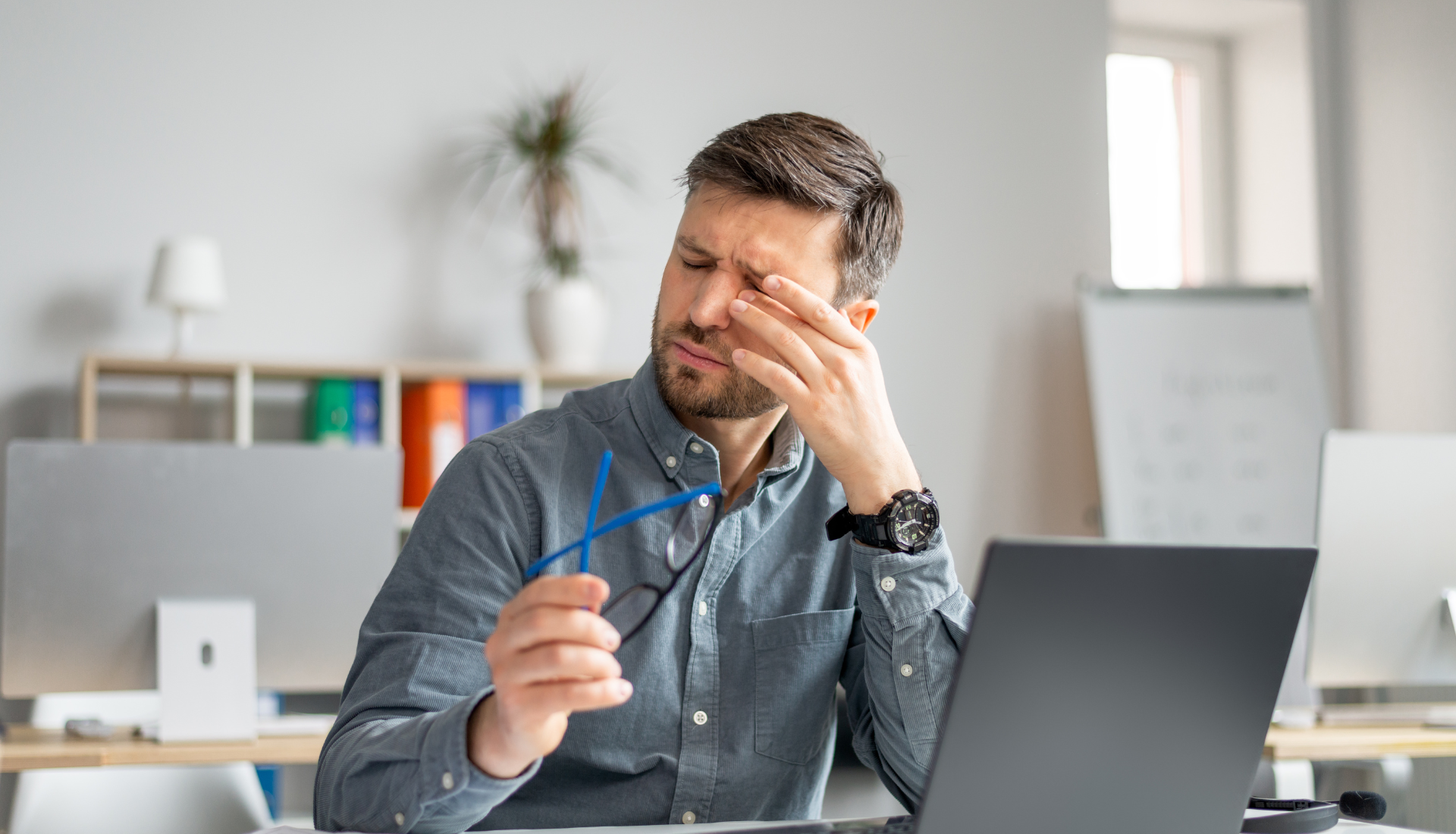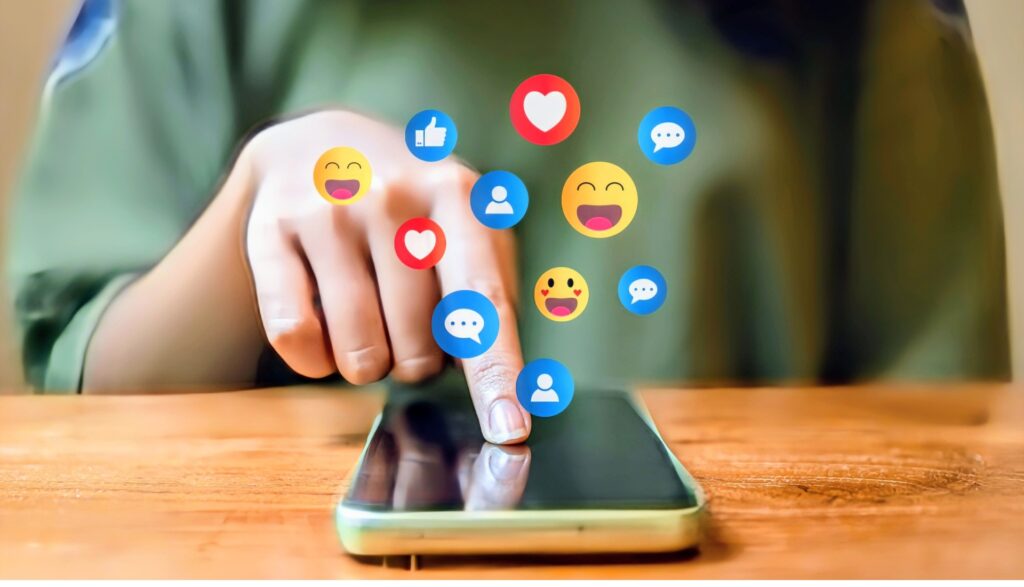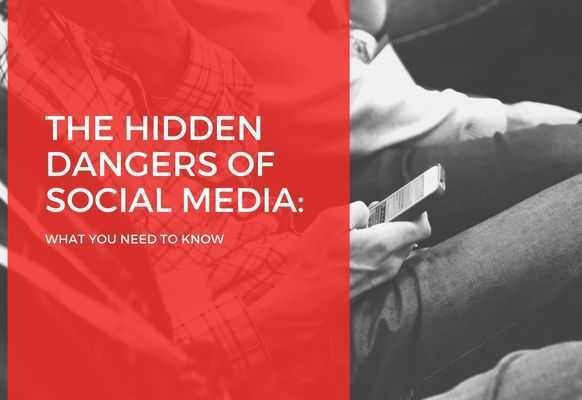Brain structure changes because of social media usage, according to research findings. The dangers of Social media extend beyond connecting friends or sharing pictures because it modifies our mental processes, delivering substantial effects on thought patterns, emotional responses and behavioural choices. Scientific studies demonstrate how prolonged exposures to social media notifications coupled with infinite scrolling result in brain pattern modifications when studying attention capacity together with emotional state and concentration ability. The incremental transformation within your brain eventually generates different forms of anxiety combined with stress, which warps your understanding of reality. The method by which these transformations occur remains unclear. Which discreet threats exist for people who spend extensive time online, and what self-protection methods exist to counteract these threats? This blog investigates the various mental, emotional and interpersonal dangers of social media as we examine its negative aspects. Follow the next sections to learn essential knowledge for protecting mental health and wellness.
Table of Contents
- Introduction: Is Social Media Messing with Your Mind?
- Mental Health: Is Social Media Making You Miserable?
- Brain Power: Is Social Media Shrinking Your Attention Span?
- Emotional Rollercoaster: Why Social Media Can Break Your Heart
- Privacy: Is Your Data Being Stolen Right Now?
- Relationships: Is Social Media Ruining Your Real-Life Connections?
- Physical Health: How Social Media Is Slowly Hurting Your Body
- Addiction: Why Social Media Is Designed to Keep You Hooked
- How to Break Free: Protect Yourself from Social Media’s Grip
- Conclusion: Time to Take Control of Your Social Media Life
Is Social Media Messing with Your Mind?

Social media now holds an essential place within our regular lifestyle. We immerse ourselves in scrolling and then clicking the heart symbol, followed by adding comments and sharing in real time. Our behaviours materialize automatically. Have you stopped to consider whether your time spent online really affects your brain processing abilities and emotional responses? This blog investigates unanticipated ways social media influences your mental and physical well-being. The following sections present details about stealthy risks while showing methods to defend your wellbeing
Anxiety, Depression, and the Dark Side of Comparison
Social media posts that appear flawless during a screen review often present us with reality-check comparisons that expose our shortfalls. Social media showcases friends who seemingly thrive while we stay entrenched or lack accomplishment and prevailing joy in our lives. Periodic social media comparison generates mental states that progressively develop into symptoms of anxiety and depression. Our sense of inadequacy deepens whenever we feel we don’t measure up to others, causing both our self-esteem and mental health to deteriorate.
FOMO: Why Social Media Makes You Feel Like You’re Missing Out
Ever felt left out after seeing everyone else having fun online? That’s called FOMO (Fear of Missing Out), and it’s one of the biggest emotional tolls of social media. When you see people hanging out, going to events, or living their best lives, it can make you feel like you’re missing out on something important. This can cause stress and dissatisfaction with your own life. The feeling of being left behind can lead to a cycle of constant checking, making the problem worse.
Addicted to Scrolling? Here’s How It’s Affecting Your Mind
The social media experience of seeing others enjoy themselves makes you feel like an outsider. Online social media experiences cause FOMO (Fear of Missing Out) which represents one of the most severe emotional challenges created by these platforms. Views of other people living their best lives and going to events make you believe you’ve been robbed of major experiences that matter—remaining dissatisfied about your life along with feeling stressed springs from observing others’ seemingly better circumstances through social media. Constant checking behaviour results from feeling left behind, which only worsens the original issue.
Is Social Media Shrinking Your Attention Span?
Has it caught your attention that sustained concentration has become an increasingly difficult task? Social networking platforms prove responsible for the problem. Brain patterns shift through relentless phone alerts, while constant checking disrupts your ability to concentrate.
Why You Can’t Focus Anymore (Blame Your Notifications)

Your phone notifications release dopamine into your brain every time they sound, causing a feel-good effect. The combination of releasing dopamine in your brain drives you to frequently reach for your phone. The problem? Continuous notifications make it impossible for you to focus on other things in your environment. Regular phone notifications shorten your attention span and affect your ability to concentrate on activities both at work and in the study and in regular conversations.
Forgetting More? How Social Media Is Hurting Your Memory
Social media encourages multitasking. While managing multiple tasks simultaneously, you may watch videos, text friends, and check your feed. Studies reveal that multitasking activities have negative consequences for your memory system. Your ability to both remember and store information suffers when you attempt multiple tasks simultaneously.
Thinking for Yourself: Why Social Media Makes Us Lazy Thinkers
Social media platforms provide quick, easy solutions through headlines, brief texts, and humorous memes. The availability of quick content on social media causes us to stay shallow in our minds. To form our own opinions and analyze points deeply, we typically depend on what others think, which generates insufficient thinking.
The Dangers of Social Media Includes Breaking Your Heart

Each social media post represents someone who exists as a flesh and blood human being. Social media platforms generate a glittering false reality, which produces major psychological effects on users.
The Perfect Lie: How Social Media Warps Reality
The majority of content found across social media spaces consists of artificial or fake presentations. Social media users share shining high points from their lives through posts about vacations alongside special events and positive experiences. Your social media exposure to carefully selected appealing images creates an idealised false reality that can make you doubt your life’s enjoyment. Your distorted perception of reality will produce negative emotions about your worth that cause diminished self-esteem.
Cyberbullying: The Silent Killer of Confidence
Social media platforms have seen an increasing trend in cyberbullying develop. Internet abuse through harassment and trolling creates permanent mental and confidence damage for people targeted by cyberbullying. Online bullying targets make victims feel both isolated and hurt even though bullies attack from behind digital screens.
Chasing Likes: How Social Media Plays with Your Emotions

The fundamental structure behind social media platforms exists to get users hunting for comments and likes along with shares. Every notification brings an emotional lift to you. However, it acts as a deceptive mechanism. The failure to get anticipated validation produces feelings of sadness that combine with sensations of disappointment. The difference in approval becomes addictive, so your self-worth becomes linked directly to your accumulated likes.
Is Your Data Being Stolen Right Now?

The quantity of personal information we disclose online remains unknown to us since we have no knowledge of the platform users. The data accumulated on social media services remains unclear to most users regarding its usage purposes. Users remain largely unaware of how their web activities lead to profit gains by trackers. Getting easy access to social media networks requires sacrificing your personal details to maintain system functionality.
How Your Personal Information Is Being Used Without Your Knowledge
Every time you post, like, or comment, social media platforms collect data about you. This data is used to show you targeted ads and even influence what you see in your feed. While this can be convenient, it also raises privacy concerns. Your data is valuable, and companies use it to make money—often without your full consent. This means that your habits and preferences are being sold to the highest bidder, often without your awareness.
Identity Theft: Why Sharing Too Much Could Cost You
Actions of sharing personal information such as location data, phone details or vacation plans create opportunities for identity thieves to attack. Through stolen personal information, cybercriminals gain access to your identity, which enables them to break into your accounts. Be wary about which personal information you share on the web. Small, innocent details online accumulate into your profile, which places your security in jeopardy.
Your Digital Footprint: Why You Can’t Hide from Your Online Past
Whenever content reaches online spaces, it will stay in permanent digital storage until the end of time. Your digital footprint remains detectable even after account deletion or post-deletion. Your privacy and reputation face permanent repercussions from information that stays posted online. Online traces of your prior digital activities stay discoverable so future employers, friends or strangers can impact your personal and professional life outcomes.
Is Social Media Ruining Your Real-Life Connections?

Social media provides ways to maintain family connections yet simultaneously damages your genuine human interactions. Online interactions generate the false perception of closeness, although they might result in worsening feelings of separation from people in your actual environment.
Losing Real Conversations: Why Face-to-Face Time Is Fading Away
Our extensive online presence has made us lose sight of how vital direct human interaction remains. Although social media builds virtual connections, these interactions remain different from true in-person relations. When negativity develops with online connectivity, people experience loneliness because they lack genuine interpersonal connections. Real-time conversations that lack clear non-verbal communication create shallow interactions, which make meaningful connections with important people difficult to maintain.
Social Media Drama: How It’s Causing Tension in Your Relationships
Through social networking sites, the number of trivial arguments becomes significantly excessive. People post and comment on social networks, creating unpredictable environments where misunderstandings combine with jealousy, leading to relationship conflict. The existence of social media conflicts becomes a needless stress factor that destroys the connections between friendship, family bonds and romantic relationships. The misunderstandings that emerge from online exchanges tend to escalate into conflicts, while standard face-to-face dialogues could successfully understand the issues.

Stuck in an Echo Chamber: Why You’re Only Hearing What You Want to Hear
Social media algorithms evaluate what you watch before determining which content to show you, leading to echo chamber effects. Because social media delivers content to match your existing beliefs, there will be minimal exposure to divergent views that trigger growing polarisation among users. The acquisition of opinions from multiple sources helps break you out of your present cognitive restraining filter. Exploring multiple viewpoints helps protect your social media experience from worsening your limited perspective.
How Social Media Is Slowly Hurting Your Body
Excessive screen time triggers physical as well as mental health difficulties besides those affecting your mind. People who spend too many hours on screens, along with sustaining bad postures in front of a screen while facing persistent internet pressure, will face major physical problems. Recognizing these problems remains vital because you need to implement steps that protect your health.
Screen Time Is Killing Your Eyes (And Your Sleep)
Your eyes suffer from strain because of extended screen use, and symptoms of persistent headaches are becoming common. Exposure to blue screen light produces negative effects that reduce your ability to sleep through the night. Staring at screens while on social media may lead you to stay active late into the night, which subsequently hurts your overall health. Too much time spent looking at screens leads to digital eye strain that results in discomfort and potentially serious vision issues which develop chronically.
Why Sitting All Day Could Be the Worst Thing for Your Health
Engagement with social media leads users to become mostly stationary. Scrolling excessively while maintaining a seated position slowly develops postural issues while causing excessive weight gain, which subsequently increases disease risk, particularly heart problems, together with diabetes mellitus. Getting up for brief physical activity remains essential for good health. Extended periods of sitting will create muscle stiffness and decrease blood circulation while causing pain throughout your upper body, thus impacting your health over time.
Stress: How Social Media Is Making Your Body Suffer
Platform users experience enhanced stress because they see continuous negative content and arguments and Internet behavioural disputes. Prolonged exposure to social media stress results in physical symptoms that include head pain along with weariness and muscle tightness. The continuous cycles of emotional volatility trigger a decline in your immune system, which in turn makes you more likely to develop illnesses and leads to physical fatigue.
Why Social Media Is Designed to Keep You Hooked

Social media platforms are created to keep you engaged for as long as possible, and they do it by playing on your psychology. The design of these platforms taps into your natural desires for validation, entertainment, and connection, making it difficult to disconnect.
The Power of Algorithms: Why You Can’t Stop Scrolling
Your social media feeds reflect content that algorithms believe specific users are most likely to interact with. Each time you like or comment on something, the algorithm will display more content that matches your interests. Devoting hours to scrolling through your device becomes inevitable as a result of these algorithms. Screen time algorithms deploy a strategy to optimize your device usage, which results in long-lasting content consumption cycles that become more difficult to leave.
Notifications Are Messing with Your Mind—Here’s Why You Can’t Resist
A buzzing phone activates dopamine drops in your brain, which produce positive feelings. Notification rewards on your phone account for your inability to resist checking your phone. The system works by maintaining your constant attention, which subsequently creates difficulties when you are trying to concentrate on alternative tasks. Electronic interruptions forge such an intense sense of urgency that both task concentration and relaxation become significantly difficult to attain.
The Dopamine Hit: How Social Media Turns You into an Addict
Through its algorithms, social media platforms specifically target the reward system in your brain. Each time you obtain even a minor dose of dopamine through social media interactions like liking, commenting, or sharing content, you will seek an additional dose. The addictive cycle, which is challenging to eliminate, develops through continual repeated engagement. Your brain seeks more and more pleasurable rewards through content interaction, which develops compulsive behaviours and challenges your ability to control screen durations effectively.
How to Break Free: Protect Yourself from Social Media’s Grip

You can defend yourself from the damaging effects of social media with a few specific defensive measures. Proactive actions will help you recover control of your online presence while placing your wellness at the centre.
Setting Boundaries: How to Stop Social Media from Controlling You
You need to define specific boundaries which regulate your social media activities. Pick both the timing and duration for checking your phone, and then commit yourself to that decision. By setting time boundaries for your social media use, you can minimise the adverse outcomes from continuous scrolling. By setting time restrictions, you can prevent uncontrolled screen scrolling, which allows you to focus on significant relationships and important life experiences.
The Power of a Digital Detox: Why Taking a Break Is a Game-Changer
Breaking free from social media platforms lets your brain and emotions replenish themselves. Spending a couple of hours up to a few days offline through a digital detox enables you to rejoin the real world while decreasing your stress levels. A brief period away from your online networks enables focus on your mental health and enjoyment of hobbies and time spent with those you love.
Healthy Social Media Habits: How to Use It Without Losing Yourself
Start a productive connection with your social media feeds through responsible usage. Select motivational content that gives you a lift by following accounts dedicated to inspiring you while invalidating unnecessary negative emotional triggers. Before getting online, establish boundaries regarding your use of social media while scheduling moments for real-life engagements. Your experience online becomes more balanced yet positive when you intentionally plan what content to engage with alongside your digital screen time duration.
Conclusion: Time to Take Control of Your Social Media Life
People underestimate the dangers of social media networks, and they use them as powerful platforms. You can build protective measures when you learn about the psychological influences together with the emotional effects and physical consequences that occur through social media usage. Create restrictions for your social media time and combine it with thoughtful use to stop it from becoming your life source. Reclaim your control of social media usage because you deserve to lead rather than be led by this platform.
